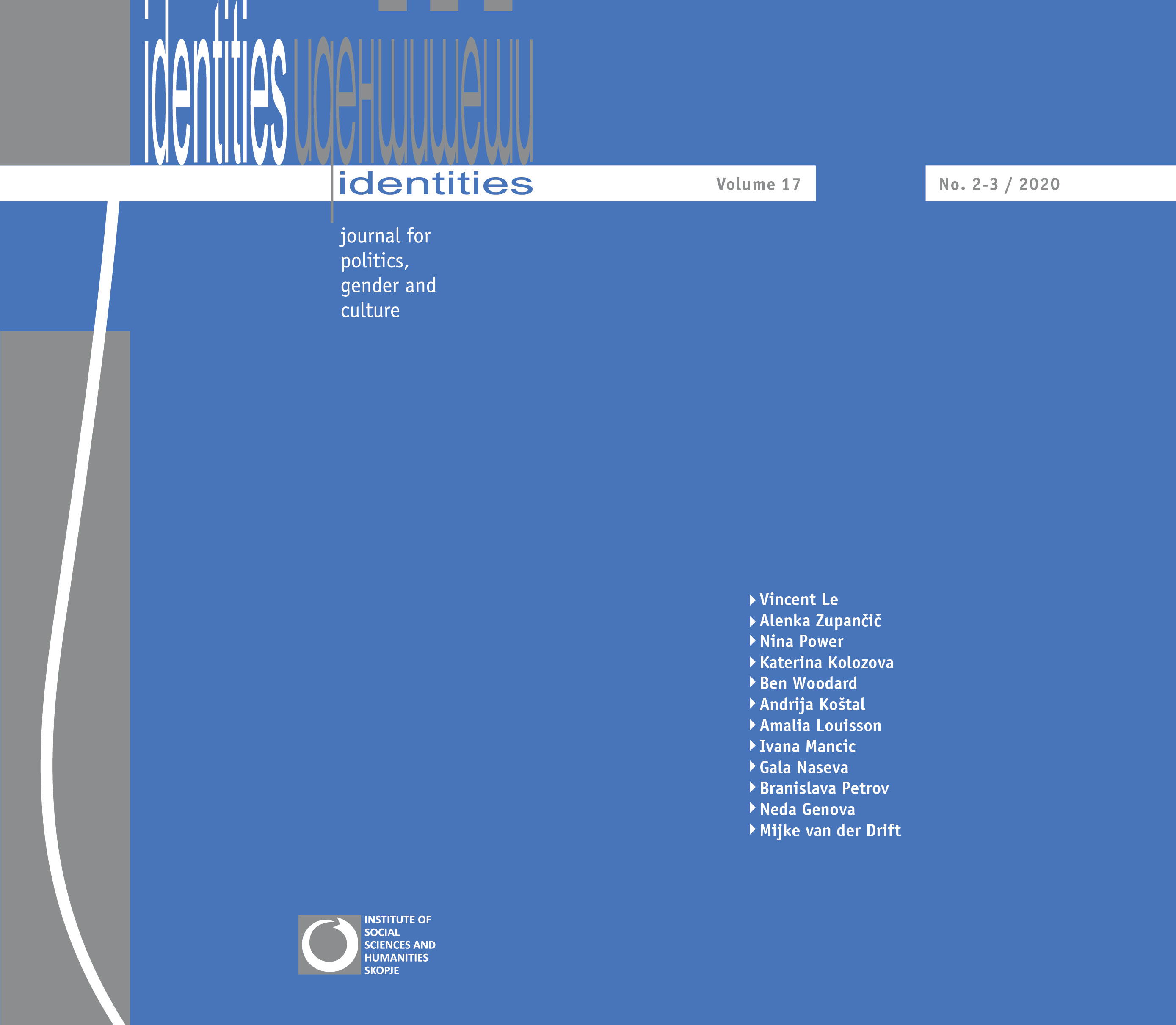Protecting Biodiversity via Metaphysical Angels of the Future
DOI:
https://doi.org/10.51151/identities.v17i2-3.450Keywords:
geoengineering, prometheanism, biodiversity protection, Katerina Kolozova, futurismAbstract
Global trends in contemporary left biodiversity protection practices are self-undermining because they are fixated on resurrecting past ecological conditions, while failing to prepare for the future. Not only will many species be unable to survive in predicted future conditions, but focusing on the past has forfeited the future to capital. Instead, this paper presented at the ISSHS School for Politics and Critique 2020 takes the recently resurrected figure of Prometheus to promote an environmentalism that casts its eyes to the future. It will be argued that preparing the future for biodiversity can sever capital’s claim over the future by prompting a traumatic instance of physicality.
Author(s): Amalia Louisson
Title (English): Protecting Biodiversity via Metaphysical Angels of the Future
Journal Reference: Identities: Journal for Politics, Gender and Culture, Vol. 17, No. 2-3 (Winter 2020)
Publisher: Institute of Social Sciences and Humanities - Skopje
Page Range: 76-80
Page Count: 5
Citation (English): Amalia Louisson, “Protecting Biodiversity via Metaphysical Angels of the Future,” Identities: Journal for Politics, Gender and Culture, Vol. 17, No. 2-3 (Winter 2020): 76-80.
Author BiographyAmalia Louisson, University of Melbourne
Amalia Louisson is a teacher, researcher, and Political Science PhD student at the University of Melbourne. Her research focuses on the relationship between psychoanalytic fantasies and environmental degradation, and how confronting the nihilism of the real can spur the conceptual and technological innovation needed to address that degradation. She advocates reconnecting philosophy with real politics and the future.

Downloads
Published
How to Cite
Issue
Section
License
Copyright (c) 2020 Identities: Journal for Politics, Gender and Culture

This work is licensed under a Creative Commons Attribution-NonCommercial-NoDerivatives 4.0 International License.
Identities is published under the following license: Creative Commons Attribution-NonCommercial-NoDerivatives 4.0 International (CC BY-NC-ND 4.0). Under this license, users of our content must give appropriate credit to authors and source as well as indicate if changes were made, cannot be used for commercial purposes, and, in the instance that it is built upon or transformed, may not be distributed. For Identities, the copyrights allow the audience to download, reprint, quote in length and/or copy articles published by Identities so long as the authors and source are cited. For more information on our license, see the following: https://creativecommons.org/licenses/by-nc-nd/4.0.








